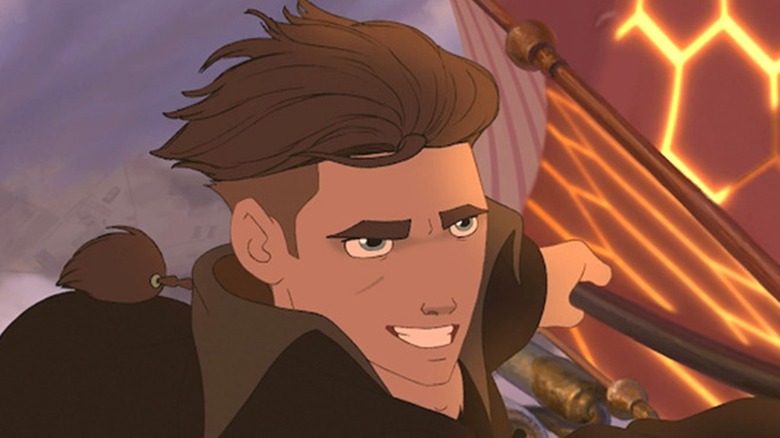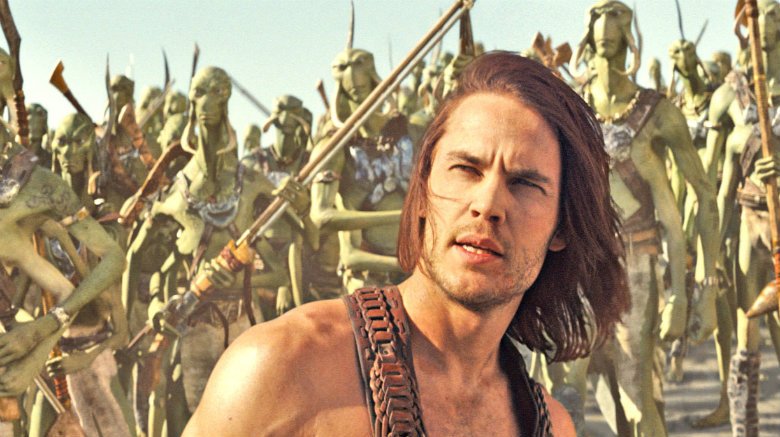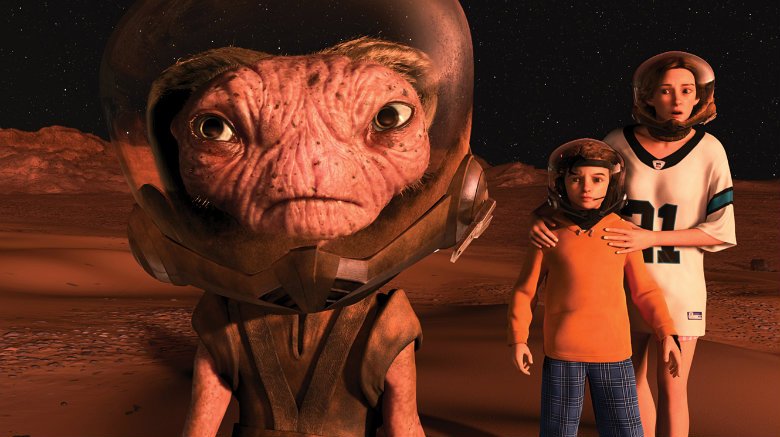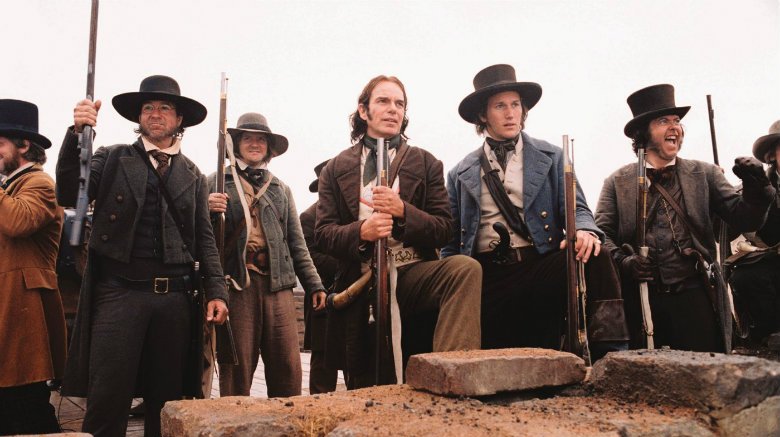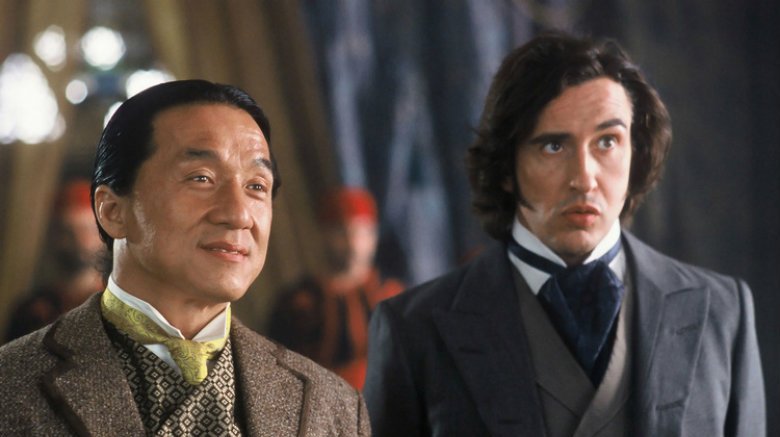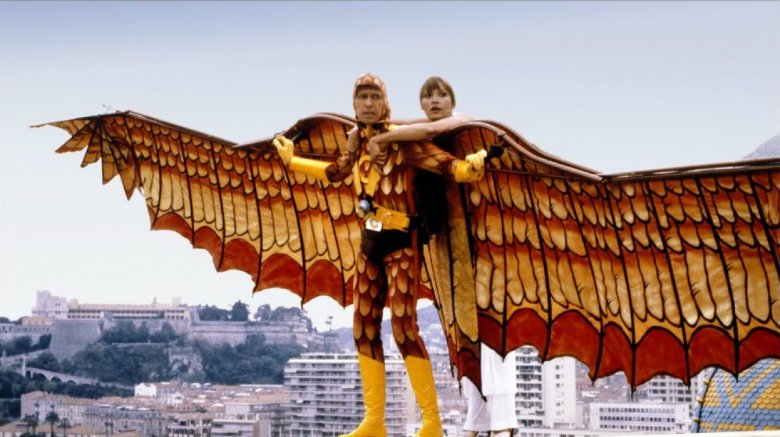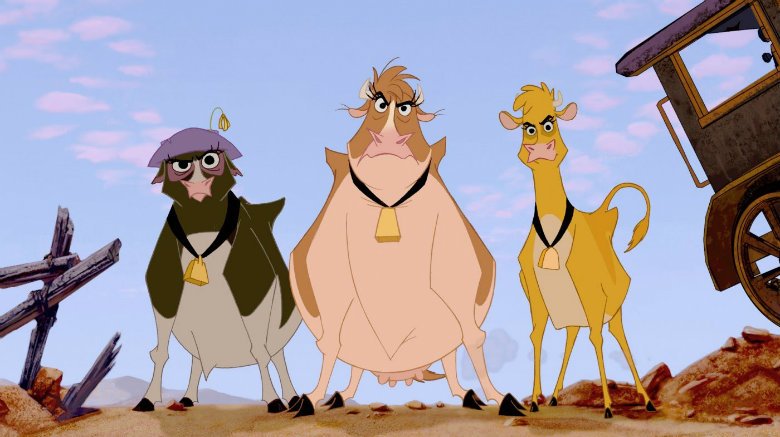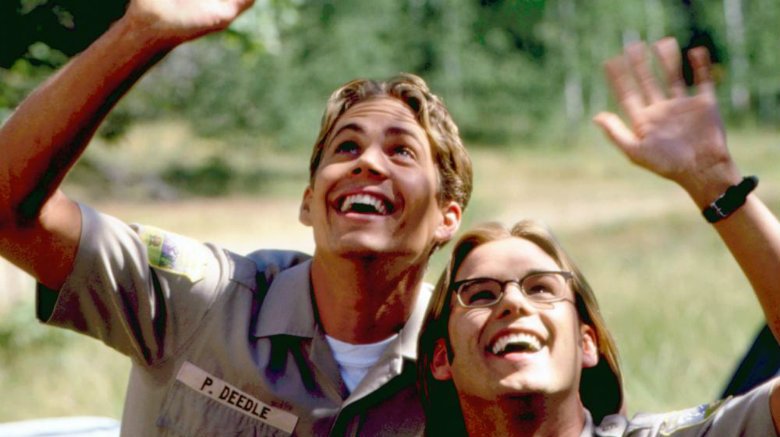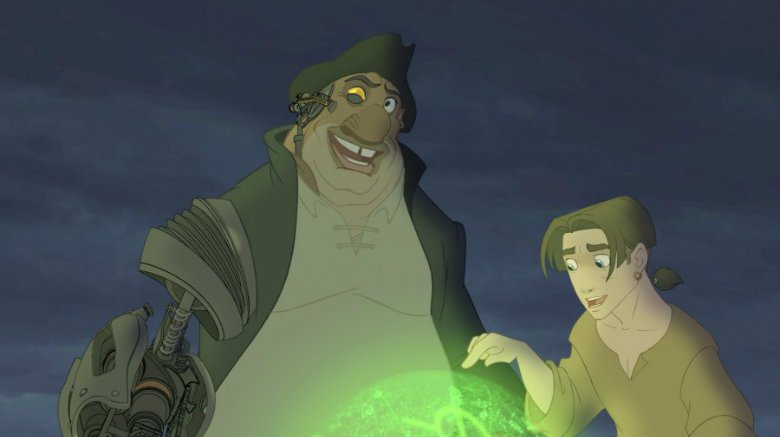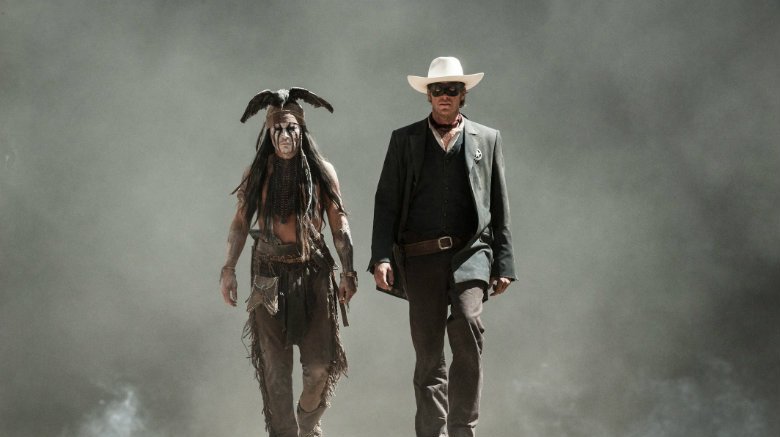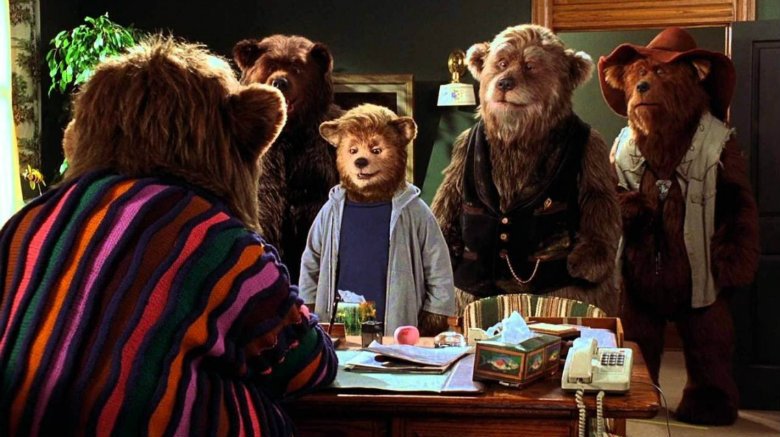Huge Flops Disney Wants You To Forget About
Remember when Baloo taught us the bare necessities or that time Aladdin introduced us to a whole new world? Disney has cast a spell over audiences for generations, creating precious childhood memories that are impossible to forget. Unfortunately for Disney, though, some of these memories are actually best left forgotten.
There's no denying the studio's incredible streak of blockbuster success, but Disney has also released a number of failures that flopped harder than Ariel on land. Join us as we take a look just around the riverbend and remind ourselves of the box office bombs that Disney would exile from the Magic Kingdom if given the chance.
John Carter (2012)
Budget: $250 million
Box office: $284.1 million
With a budget larger than the planet Mars itself, John Carter could have been destined for greatness. After all, the sci-fi epic was based on a series of classic novels written by Edgar Rice Burroughs, and director Andrew Stanton was still riding high on the success of Finding Nemo and WALL-E. Unfortunately, the stars didn't quite align in this case, and Carter lost $200 million for Disney once total production and marketing costs were taken into account.
Despite the fact that John Carter performed reasonably well at the box office and even set an impressive opening-day record in Russia, Disney still decided to cancel Stanton's plans for a full-blown trilogy based on the Barsoom series. For a few years after, both Stanton and actor Taylor Kitsch still held out hope that Gods of Mars and Warlord of Mars would be given the green light. However, these dreams were eventually dashed when Disney allowed the film rights to revert back to the Edgar Rice Burroughs Estate in 2014.
Mars Needs Moms (2011)
Budget: $150 million
Box office: $39 million
Based on the Berkeley Breathed book of the same name, Mars Needs Moms revolves around a nine-year old boy called Milo whose mother has been kidnapped by Martians. The subject matter was rather unusual for Disney, and audiences were clearly not interested—the movie is now considered one of the biggest box office bombs of all time.
The outright failure of Mars Needs Moms forced Disney to subsequently absorb the motion-capture branch of the company back into ImageMovers, losing a number of employees in the process. What's most disheartening about this is that the movie had the potential to breathe new life into the House of Mouse, mastering the realm of motion-capture in the same way previous films had pioneered both CGI and hand-drawn animation.
Instead, the creepy visuals seen in Mars Needs Moms ultimately floundered in the Uncanny Valley, a term used to describe animation that tries to look realistic but just misses the mark, creating an off-putting mix of fantasy and reality. Is it any wonder than that director Simon Wells hasn't directed a movie since? Following the failure of Mars Needs Moms and John Carter, Disney would be wise to avoid returning to Mars, lest they risk another failure of intergalactic proportions.
The Alamo (2004)
Budget: $107 million
Box office: $26 million
While John Wayne's take on the Battle of the Alamo was nominated for six Academy Awards in 1960, Disney's interpretation didn't fare nearly as well. Despite taking time to admirably explore both the Mexican and Texan sides of the conflict, The Alamo received mixed reviews upon its release in 2004, and became one of the biggest flops released yet by Disney. Neither the star power of Dennis Quaid and Billy Bob Thornton nor the historical significance of the battle in question were enough to draw in audiences and recoup The Alamo's impressive budget.
As if that wasn't unfortunate enough, Disney must have also kicked themselves over the film's tagline of "You will never forget," which was used to promote The Alamo on thousands of posters across the country. These days, Disney would do anything to help audiences forget the embarrassing failure of this high-profile Western.
Around The World In 80 Days (2004)
Budget: $110 million
Box office: $72 million
Loosely based on the classic Jules Verne novel, Around The World In 80 Days updated the original story with elements of steampunk and a huge array of comedy actors that included the likes of Steve Coogan, Jackie Chan and Luke Wilson. However, despite the star power on display, the end result failed to impress critics and audiences alike, many of whom struggled to sit through the film for more than 80 minutes.
Following the release of Around The World In 80 Days, director Frank Coraci found success again with the Adam Sandler vehicle Click, returning to his ongoing partnership with the comedic actor onscreen. Arnold Schwarzenegger fared less well, taking a hiatus from acting after he received a Razzie nomination for Worst Supporting Actor at the 25th Golden Raspberry Awards. Sure, Schwarzenegger also dove into politics around this time, winning election as the governor of California, but perhaps it's no coincidence that he opted not to tackle another Hollywood role until years later in 2010's The Expendables.
Condorman (1981)
Budget: $14 million
Box office: >$14 million (Estimate)
Long before Michael Keaton's Birdman soared onto our screens, Disney released their very own bird-themed superhero movie in the form of Condorman. Starring Michael Crawford, the film revolved around comic book illustrator Woodrow Wilkins, who could transform into his very own superhero creation. Cue some seriously hokey visual effects, bizarre costumes, and an extremely basic storyline that didn't hold much appeal beyond the young target audience.
Unsurprisingly, Condorman crashed and burned at the box office, and critics were quick to take aim too. Although the superhero genre has made huge strides in popularity since Condorman was released in 1981, it's still hard to imagine a world where Disney would ever want to remind audiences of this winged misstep.
Home on the Range (2004)
Budget: $110 million
Box office: $104 million
When compared to the magic carpet rides and Chinese battlefields that preceded it, was it any wonder that the the Old West setting of Home on the Range failed to dazzle audiences upon its release? Sure, Disney has often found magic in the most unlikely of places, but this animated outing's dull script and forgettable characters led to a box office failure that many blame for the studio's change in direction away from hand-drawn animation and toward CGI.
It didn't have to be this way. Enlisting Academy-Award winning composer Alan Menken to write the score was a stroke of genius, and casting Roseanne Barr in the lead role of Maggie also injected some much-needed charisma. Ultimately, though, Home On The Range turned out to be one of Disney's most lackluster efforts, and remains a far cry from 'Renaissance' movies like Aladdin and The Lion King that were released just a decade earlier.
Meet the Deedles (1998)
Budget: $24 million
Box office: $4.4 million
Long before Paul Walker won over filmgoers in The Fast and the Furious franchise, the young star appeared alongside Steve Van Wormer in Meet the Deedles. This misguided attempt to capitalize on the success of Dumb and Dumber and other goofball duos poked fun at surfer culture in ways that were anything but gnarly.
In fact, Meet the Deedles felt dated immediately upon release, bumming out audiences and critics alike. It shouldn't come as too much of a surprise to discover that the film's dire critical reception was also matched by painfully low box office earnings that sank any hopes of a sequel. To be fair, Deedles never stood much of a chance. Prior to making his directorial debut with this feature, Steve Boyum had only worked as a stunt performer.
Treasure Planet (2002)
Budget: $140 million
Box office: $109 million
Treasure Planet may have drawn inspiration from Treasure Island, the classic pirate tale written by Robert Louis Stevenson, but Disney plundered little gold with this effort, failing to recoup the film's hefty budget. Strong reviews, groundbreaking visuals, and a creative spin on the original story weren't enough to draw in the number of viewers needed to break even—and that's before the film's marketing expenses were taken into consideration.
Before Treasure Planet sank to the bottom of the box office, Disney clearly had faith in the project, enlisting the visionary filmmakers behind The Little Mermaid to steer the ship in hope of kickstarting a potential franchise. Ron Clements and John Musker directed, co-wrote, and co-produced, earning the film an Academy Award nomination for Best Animated Feature along the way. However, despite everything Treasure Planet had going for it, not even a simultaneous release in regular and IMAX theaters could prevent the film's potential sequels from walking the plank and drowning at the bottom of the seven seas.
The Lone Ranger (2013)
Budget: $215 million
Box office: $260.5 million
Following a 32-year absence from the silver screen, the Lone Ranger finally rode back into cinemas in 2013 and grossed $260.5 million worldwide. Admittedly, that figure does sound rather impressive, but when you factor in added costs of $150 million for marketing and distribution, The Lone Ranger suddenly seems like the kind of film that Disney wishes would ride off into the sunset for good.
Even before Ranger was released, production setbacks caused concern for Disney executives, and the casting of Johnny Depp in a Native American role mired the film in controversy. In theory, it's easy to see why Disney were eager to reunite Depp and director Gore Verbinski following their success with the Pirates of the Caribbean franchise. However, this film's failure suggests that the novelty of seeing Depp in one of his many zany roles had worn out for audiences, leading some to question whether this could even be the beginning of the end for his career.
Critics struggled to enjoy The Lone Ranger too, blaming a bland script and drawn-out running time for the film's lack of success. On the plus side, Verbinski's movie did receive two Academy Award nominations for Best Visual Effects and Best Makeup and Hairstyling, although these were outshone by five Golden Raspberry nominations, including a win for Worst Prequel, Remake, Rip-off or Sequel.
The Country Bears (2002)
Budget: $35 million
Box Office: $18 million
Based on a Disney theme park attraction, The Country Bears revolves around young cub Beary Barrington, who yearns to understand his origins after discovering that he was adopted by his human family. The only thing more hokey than this tired and unoriginal premise was the animatronic bear suits themselves, which easily number among the least impressive creations produced by Jim Henson's Creature Shop.
Haley Joel Osment impressed critics in The Sixth Sense, but he was received far less favorably here—along with the rest of the cast. In fact, the only reason anyone would consider recommending this oft-maligned musical is the bizarre scene in which Christopher Walken belts out a musical number that consists entirely of fart noises. For this unforgettable moment in cinematic history, the Golden Raspberry Awards nominated Walken for Worst Supporting Actor. (He lost out to Hayden Christensen for his turn in Star Wars: Episode II:Attack of the Clones.)
